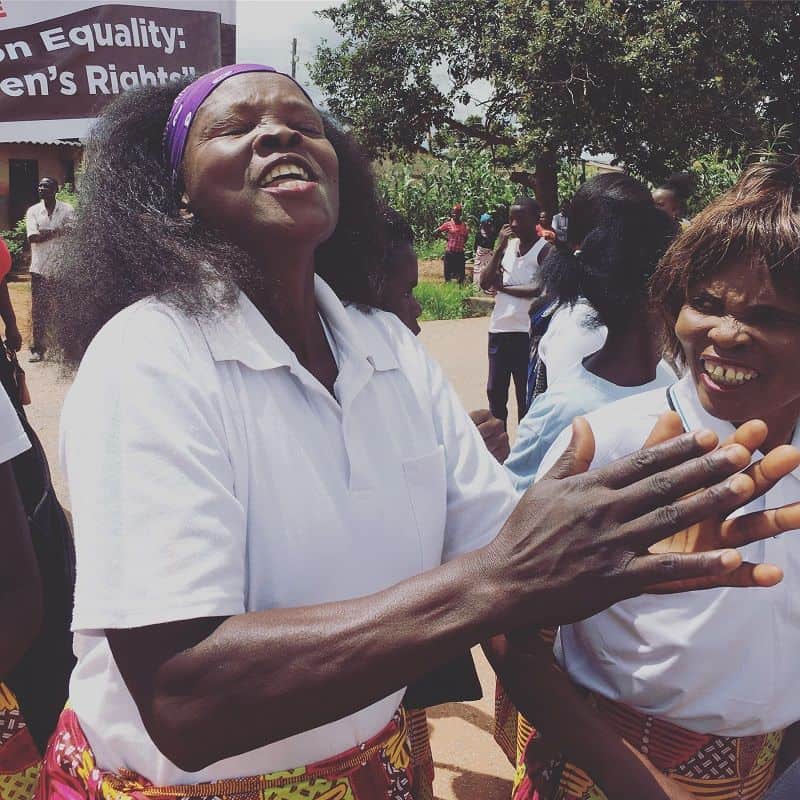In the pursuit of Peace and Harmony
May We Celebrate Women Everyday

Dear Supporter,
We celebrate you today for all you are doing to amplify the voices of women and girls in Kasama and the greater Northern Zambia Region.
When our Mothers and Sisters are liberated, we will know peace in our homes and communities. In these trying times, your support of Bakashana and other female-focused, community-based organizations is more important than ever.
According to the UN:
- Worldwide, only 25.5 percent of all national parliamentarians are women.
- In 2020, women made up 36.3 percent of local-level elected positions globally.
- In 2020, women served as Heads of State or Government in only 22 countries worldwide.
We are grateful for the ways that you enable us to empower and celebrate women and girls everyday.
In solidarity, collaboration, and gratitude,
![]()
 Members of one of our 14 Youth Clubs acting to illustrate types of Sexual and Gender-Based Violence (SGBV). SGBV is our key theme this year as we work under European Union’s Natwampane ‘Together to Stop SGBV’ project. Our Youth Clubs (Girls Leading Our World, and Boys For Change) work in 12 schools and 2 clinics. In addition to clubs, we offer Survivor support groups and are providing improved advocacy through government SGBV resource facilities.
Members of one of our 14 Youth Clubs acting to illustrate types of Sexual and Gender-Based Violence (SGBV). SGBV is our key theme this year as we work under European Union’s Natwampane ‘Together to Stop SGBV’ project. Our Youth Clubs (Girls Leading Our World, and Boys For Change) work in 12 schools and 2 clinics. In addition to clubs, we offer Survivor support groups and are providing improved advocacy through government SGBV resource facilities.
“A girl who grows up in a home where her father abuses her mother is more than six times as likely to be sexually abused as a girl who grows up in a non-abusive home. Children who witness or are victims of emotional, physical, or sexual abuse are at higher risk for health problems as adults.” [1]
 “Investing in women’s economic empowerment sets a direct path towards gender equality, poverty eradication and inclusive economic growth. Women make enormous contributions to economies, whether in businesses, on farms, as entrepreneurs or employees, or by doing unpaid care work at home. But they also remain disproportionately affected by poverty, discrimination and exploitation.” [2]
“Investing in women’s economic empowerment sets a direct path towards gender equality, poverty eradication and inclusive economic growth. Women make enormous contributions to economies, whether in businesses, on farms, as entrepreneurs or employees, or by doing unpaid care work at home. But they also remain disproportionately affected by poverty, discrimination and exploitation.” [2]
Our most recent PEPFAR OVC Caregiver group empowered 70 women-headed households through financial literacy, business capital investment, and monthly savings meetings. These women care for orphaned kids in addition to their own children – many of whom face extra challenges including physical disabilities, positive HIV status, abuse in the home, etc.

